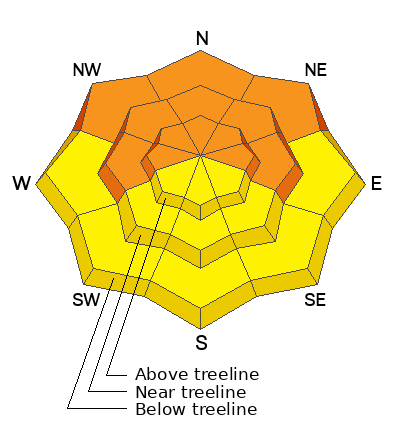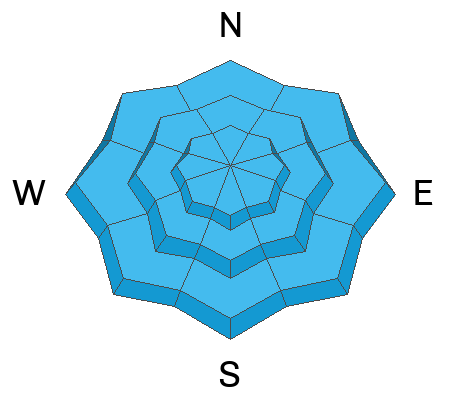Forecast for the Moab Area Mountains

Issued by Eric Trenbeath on
Thursday morning, January 18, 2024
Thursday morning, January 18, 2024
A CONSIDERABLE avalanche danger exists on all steep slopes facing W-N-E, near and above treeline, and on slopes facing NW-N-E below. Deep and dangerous human triggered avalanches involving a buried persistent weak layer are likely in these areas.
A MODERATE avalanche danger exists on steep slopes facing SW-S-SE at all elevations, and on W and E aspects below treeline. Human triggered avalanches failing on a buried persistent weak layer are possible.
A very weak, and unstable snowpack has developed and this situation is likely to be with us for awhile. Cultivate the mindset that avalanche terrain is off limits and keep your slope angles less than 30 degrees.

Low
Moderate
Considerable
High
Extreme
Learn how to read the forecast here








